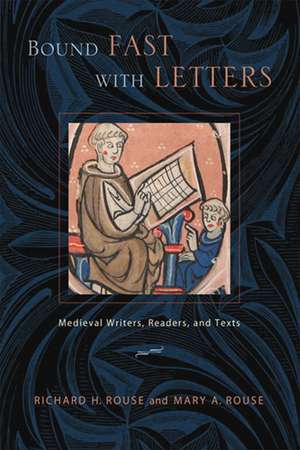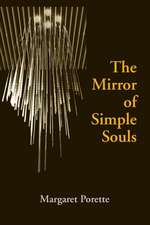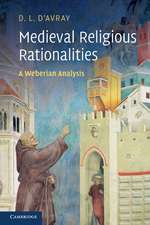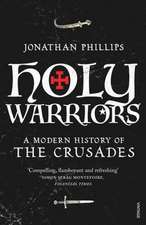Bound Fast with Letters – Medieval Writers, Readers, and Texts
Autor Richard H. Rouse, Mary A. Rouseen Limba Engleză Paperback – 14 iun 2013
| Toate formatele și edițiile | Preț | Express |
|---|---|---|
| Paperback (1) | 462.77 lei 6-8 săpt. | |
| MR – University of Notre Dame Press – 14 iun 2013 | 462.77 lei 6-8 săpt. | |
| Hardback (1) | 849.87 lei 6-8 săpt. | |
| MR – University of Notre Dame Press – 31 iul 2022 | 849.87 lei 6-8 săpt. |
Preț: 462.77 lei
Preț vechi: 601.00 lei
-23% Nou
Puncte Express: 694
Preț estimativ în valută:
88.55€ • 94.69$ • 73.83£
88.55€ • 94.69$ • 73.83£
Carte tipărită la comandă
Livrare economică 18 aprilie-02 mai
Preluare comenzi: 021 569.72.76
Specificații
ISBN-13: 9780268040338
ISBN-10: 0268040338
Pagini: 588
Ilustrații: 87 halftones
Dimensiuni: 206 x 253 x 38 mm
Greutate: 1 kg
Ediția:1st Edition
Editura: MR – University of Notre Dame Press
ISBN-10: 0268040338
Pagini: 588
Ilustrații: 87 halftones
Dimensiuni: 206 x 253 x 38 mm
Greutate: 1 kg
Ediția:1st Edition
Editura: MR – University of Notre Dame Press
Recenzii
"Bound Fast with Letters is another triumphant collection, ranging across a millennium, and teasing from individual manuscripts (or small groups) whole worlds of learning, book production, patronage, faith, and political power. Richard and Mary Rouse ask 'basic questions' of these manuscripts—which might with less modesty be called fundamental: who made the object, where, for whom, and for what use? Where did the manuscript travel in its later life, and how did its uses change across place and time? As comfortable and skilled in the archive as they are in the library, the Rouses draw together the fruits of each with unique skill and the wisdom of many years’ thought. It is an inspiration for any scholar to witness such a marriage of true minds, actively at work in their sixth decade of joint studies and publication." —Christopher Baswell, Ann Whitney Olin Professor of English at Barnard College and Columbia University
"The common denominator shared by all of these essays is the human dimension, constituting in some ways a people-oriented history of the book and the book trade. The collection emphasizes the experimental nature of book production, the communities of artisans of the book, and the practicalities of life in them, the movement of scribes and artists, and the expectations of patrons. All of the articles place manuscript production in historical, social, and cultural contexts." —Keith Busby, University of Wisconsin, Madison
"Bound Fast with Letters is an outstanding contribution to our understanding of the worlds in which medieval books moved. Impressive in its chronological and geographical scope and richly textured, the book offers detailed readings of manuscripts and archives, words and images. These collected articles increase our understanding of the humans who authored, copied, illustrated, read, and reread books in medieval Europe." —Anne D. Hedeman, Judith Harris Murphy Distinguished Professor of Art History, University of Kansas
"Few have done more in the past half-century to nurture the study of medieval manuscripts in North America than Richard and Mary Rouse. . . . One of the elements that make Bound Fast with Letters so striking is its capacity to set manuscript production in human contexts. . . . This is a book that makes the dry bones of medieval codicology live." —Times Literary Supplement
"This is a comprehensive look at the Rouses' professional career and covers many areas of their research in the field. Though not a typical survey of early manuscript production, it will be a valuable reference tool for scholars interested in the history and politics of the early bound manuscript trade. . . . Highly recommended." —Choice
“This book collects eighteen articles written over four decades that study writing, broadly conceived, as a medium of social preservation and cultural production. . . . No review can do justice to this beautifully produced and carefully edited gathering of well over 500 pages—neither to the riches it reveals or the methods it champions.” —Information and Culture: A Journal of History
“Far from merely reprinting old material, the Rouses have created a cohesive volume in which the essays speak to each other on both thematic and methodological levels. The studies in this volume paint a vivid and comprehensive picture of medieval manuscript production, circulation of texts, and cultural movements by looking at specific actors and the objects they left behind.” —Comitatus: A Journal of Medieval and Renaissance Studies
“. . . the collection opens up scintillating scenes of medieval life as a whole. This is a very useful collection, a major contribution by which future explorers in the wilderness of medieval book culture might wish to be guided in their task.” —Parergon
“. . . the collection opens up scintillating scenes of medieval life as a whole. This is a very useful collection, a major contribution by which future explorers in the wilderness of medieval book culture might wish to be guided in their task.” —Parergon
“These astonishing episodes, recovered from erasures tucked between books of the Bible, are emblematic of the Rouses’ method. Combining codicology, deep archival research, bibliographical mastery, and, most important, deep sympathy for their historical subjects, their own collaboration uncovers the most varied examples of teamwork in the past. In the process, their persistent, probing scrutiny renders visible a Middle Ages previously lost from view.”—Common Knowledge
“[Bound Fast with Letters] a useful and frequently humbling compendium of what one particular approach to manuscript study can reveal as it is exercised over many years and on a broad spectrum of materials. . . The many discoveries about the Middle Ages laid out in Bound Fast with Letters—discoveries made through extraordinarily skilled research and explained with erudite lucidity—demonstrate the value of Richard and Mary Rouse’s approach to the study of the past.” —Modern Philology
“Over four decades the Rouses’ prolific work on medieval manuscripts has continuously advanced knowledge in this field by providing convincing answers to and unique examples of the way books were conceived, constructed, copied, illuminated, commissioned, sold, and used. . . . The result is a breathtaking stretch of work ranging from writing practices in fifth-century Northern Africa to fifteenth-century commercial book-making in France and Italy.” —Manuscripta
“[Bound Fast with Letters] a useful and frequently humbling compendium of what one particular approach to manuscript study can reveal as it is exercised over many years and on a broad spectrum of materials. . . The many discoveries about the Middle Ages laid out in Bound Fast with Letters—discoveries made through extraordinarily skilled research and explained with erudite lucidity—demonstrate the value of Richard and Mary Rouse’s approach to the study of the past.” —Modern Philology
“Over four decades the Rouses’ prolific work on medieval manuscripts has continuously advanced knowledge in this field by providing convincing answers to and unique examples of the way books were conceived, constructed, copied, illuminated, commissioned, sold, and used. . . . The result is a breathtaking stretch of work ranging from writing practices in fifth-century Northern Africa to fifteenth-century commercial book-making in France and Italy.” —Manuscripta
Notă biografică
Richard H. Rouse is professor of history emeritus at University of California, Los Angeles.
Mary A. Rouse is former managing editor of Viator. They are coauthors of a number of books, including Manuscripts and Their Makers. Commercial Book Producers in Medieval Paris, 1200–1500 (Harvey Miller Publishers, 2000).
Mary A. Rouse is former managing editor of Viator. They are coauthors of a number of books, including Manuscripts and Their Makers. Commercial Book Producers in Medieval Paris, 1200–1500 (Harvey Miller Publishers, 2000).
Descriere
Bound Fast with Letters brings together in one volume many of the significant contributions that Richard H. Rouse and Mary A. Rouse have made over the past forty years to the study of medieval manuscripts through the prism of textual transmission and manuscript production. The eighteen essays collected here address medieval authors, craftsmen, book producers, and patrons of manuscripts from different epochs in the Middle Ages, extending from late antiquity to the early Renaissance, and ranging from North Africa to northern England. Their investigations reveal valuable information about the history of texts and their transmission, and their careful scrutiny of texts and of the physical manuscripts that convey them illuminate the societies that created, read, and preserved these objects.
The book begins in Part I with articles on writers from the patristic era through the twelfth century who experimented with, and mastered, various physical forms of presenting ideas in writing. Part II contains essays on patronage and patrons, including Richard de Fournival, Jean de Brienne, Watriquet de Couvin, Pope Clement V, the Counts of Saint-Pol, and Christine de Pizan. Part III, on manuscript producers, discusses the questions, for whom? and by whom? were manuscripts made. The four essays in this section each reflect on a different part of the process of book-making. Throughout, Bound Fast with Letters focuses on the close ties between the physical remains of literate culture—from the wax tablets of the patristic era to the vernacular literature of the wealthy laity of the late Middle Ages—and their social and economic context.
"The common denominator shared by all of these essays is the human dimension, constituting in some ways a people-oriented history of the book and the book trade. The collection emphasizes the experimental nature of book production, the communities of artisans of the book, and the practicalities of life in them, the movement of scribes and artists, and the expectations of patrons. All of the articles place manuscript production in historical, social, and cultural contexts." —Keith Busby, University of Wisconsin, Madison











